SMJ sat down with Dr Ian Lambert, Principal of The Scots College in Sydney, to discover his approach to branding and marketing the 125 year old school.
SMJ: Can you describe The Scots College?
IL: It’s a very old school in a beautiful location in Bellevue Hill overlooking Sydney harbour. We are a day and boarding school for boys with just over 2,000 students. It has a lot of heritage and is a very modern school in lots of ways. It’s a high energy place. It’s a place where the parents, the staff and the boys expect us to do everything very well. You don’t get away with mediocrity here. It’s a multi-campus setting as well. We operate eight Scots sub-campuses at the moment, including an agricultural campus and an outdoor education campus.
SMJ: Tell us about you, the person.
IL: I have had a great life. I’ve had the opportunity to grow up living on the harbour in Sydney, on cattle properties across New South Wales and on the beachfront of the Gold Coast in Queensland. So I’ve had a very adventurous and diverse lifestyle. I think I’ve lived in 25 houses and been to multiple schools, and we always seemed to juggle that and feel very secure — I think because of the tightness of our family. But I think that’s also given me quite a passion for thinking about what’s around the corner. And I think the reason I went into education is I actually loved school. I went to The Southport School on the Gold Coast and ended up as Head Boy, very active, very involved in the life of the school. I saw how much impact it had on me and on my brothers. And in some ways, I formed a view that it would be great if every child could have a great experience of school. I always got frustrated when I heard people didn’t like school. So, making sure we have a wonderful school experience is really important for me.
SMJ: Give us a quick snapshot of your educational journey or career.
IL: I finished school, travelled, started a business degree, then worked as a brickie’s labourer. I decided to go back to university at Griffith University in Queensland and studied a joint degree in the arts and education. I then worked in two schools in Brisbane and the Gold Coast. I decided to pursue postgraduate qualifications in my areas of interest, one of which is literature, and went to the University of London to study 20th century literature. From there I went to the University of Cambridge, joined the education faculty and undertook a study in religious schools. I came back and worked in teacher education here in Australia then went to Perth to be the Principal of Swan Christian College. Nine years later I applied for the position at Scots and I’ve now been at Scots for 12 years.
SMJ: What does school marketing mean to you?
IL: I think schools are a contest of ideas. Schools are usually situated in a set of beliefs and values about people, about education, about community, about ideas. And for me school marketing is important because, if you do it well, it allows you to take all that complexity and to position it very clearly and succinctly to a community, both within your school and also to a community outside. So for me, school marketing is about making the complex simple, but not making it superficial.
SMJ: Does it have any particular commercial overtones?
IL: Well, I think it does. I think a lot of educators, particularly teachers, are often wary of marketing — and in fact the public is wary of marketing — if they see it as slick or untruthful, making the story sound bigger than it actually is. So I think if it’s authentic, if you can explain the reasons why you market, and particularly if you can tap into things that your educators believe are really important, and then just work with them to say, “Well, how can we actually communicate that to people who don’t know us?” … that’s at the heart of it. Generally, educators know there is a business that sits around a school, but they often don’t see that as the primary focus. What they see is the work they’re doing with children in and outside of the classroom as the primary purpose of a school.
SMJ: Why do you think marketing is important?
IL: We might not like it, but we’re all out there looking for the best students to come to our schools. And when I mean best, I mean families that are aligned to what you’re trying to achieve. So we are in a contest out there in the independent sector. We’re competing for students. And when you think about it, you don’t need that many students, but you’re really trying to get the right people in front of you. And that’s where I think the marketing becomes really important.
I tend to take the view here at Scots that I hope our marketing will both attract and push away certain people. I would hate to think our marketing would attract certain types of families and boys that really would not flourish here.
SMJ: So schools are different, and schools have points of differentiation?
IL: I think that’s becoming more and more important, but we tend to think schools are all the same. The reality is for parents, what you want to tap into is the types of values and the type of experience your child will have at the school. The only way you can really do that is visit the school to find that out, but you can’t go and look at 300 schools. You don’t have time. So you look at the marketing and you hope through that marketing you’ll be able to narrow that down to three or four and then maybe visit those. So I see the importance of marketing as reaching out into the community and then dragging the right people back towards you. That is where the school takes over and we try to make sure that everything we show people is exactly what they read about through our marketing.
SMJ: That’s the marketing and sales divide.
IL: Yes, it is. I think there is a difference between marketing and sales, and the marketing is about telling your story, making it clear and getting people to the shopfront. That’s when the sales experts who are the teachers, admissions people, Principal and others can really unfold in detail the points of difference and the particular programs that you are very proud of.
SMJ: What aspect of marketing do you find difficult as a school Head?
IL: There’s so much noise out there. We are in a marketing-saturated environment. The quality of marketing has improved so much and the difficulty is trying to work out how to segment your marketing to reach the right people.
SMJ: What depresses you about school marketing?
IL: When people internally try and modify the good work that’s been done by professionals. I think you have to police your brand and manage your brand really carefully. You tend to get those who have understanding and alignment, and those who really don’t see the importance.
SMJ: What changes have you seen in your career?
IL: I think schools have been less confident to really articulate their deeply held missional beliefs and values. I think marketing has some wonderful traits. I also think there is some superficial marketing. My argument would be marketing has to dig deep into the soul of a school and then work out how you can best articulate that.
SMJ: You led the way in fully outsourcing your marketing and communications function. Why?
IL: I came into a school that had a lot of really good things, but there was inconsistency around the messages that were going out. There was inconsistency around the quality of production or publications. There was inconsistency around the way we would answer the phone, the way we would welcome people into the school. I realised that education is probably the one thing we’re really good at. So why don’t we actually stop to think about the things we’re not good at, that we’re not trained for and start looking for companies that specialise in those spaces? And why don’t we keep our focus on our core business, which is education, and then run those support services in partnership with experts?
The other thing was if I have a director of marketing and two other administrative people, usually that director of marketing will have a specialist knowledge in a particular area. It might be digital marketing, print media, film, radio or something like that, but they actually don’t have expertise in the full range of services. So I was looking for a partner I could develop a service agreement with and we would be able to set a budget, sit down and say, “Right, during this year, this is what we want to do.” But if we need to draw on more resources because of unforeseen circumstances, for example a media frenzy and you need to have a media management specialist, or you need to really do a lot of extra work in graphic design, then we could actually draw on those services without going out to a whole bunch of different companies to do that. You were going to a company that was managing your brand, understood your brand and would be able to develop a suite of services and products that were very much on brand and focused.
SMJ: It would have been rare for anybody in a school setting to believe that somebody external to the school would be able to understand your brand and nuances, but you were prepared to take that risk?
IL: Yes. You know, I don’t pretend I was a cutting-edge genius for doing it. It was probably more a gut feeling, an idea and saying, “I think we could probably do this differently or better.” I think it was really important for us, when we went out to tender, to find an organisation that really deeply understood who we were, what was important to us and what sat behind our messaging. I could have gotten 20 or 30 companies that could produce great websites, nice images and print nice things, but being a church school, really understanding the importance of that, understanding the network that we sit in and how we served that, and that our marketing and our messaging needs to be respectful and supportive of all those relationships … it was looking for a partner that understood that. It takes a little bit of time to develop that relationship. I mean, we’ve stuck with imageseven for quite a few years now and part of the reason is I don’t think marketing is something you can chop and change every two years. I don’t think you’d go into this model if your plan was to just shop around for the best price all the time. I think you’re really looking at establishing a mutually enthusiastic and respectful relationship with the company. Otherwise, I don’t think it would work.
SMJ: So what role does strategy play in marketing at Scots?
IL: Strategy is extremely important. You need to think deeply about your philosophy and that is work you should do with your school council or your board, and also with your staff and your parents. But if you don’t know who you are and you can’t answer those ‘why’ questions, then it is very hard to develop direction, it’s very hard to develop any sense of authenticity around the values that you select or articulate. So I see strategy as the other face of the coin. Philosophy is on one side and then strategy on the other. Once you’ve got that foundation that really tells you who you are, and strategy really clarifies where you should go, I think marketing not only markets who you are, but it also tells people about the journey you’re on. Nobody really wants to belong to an institution or a club or a school that is static. People want to know where you are going and why you are going there, and I think marketing has a critical role to play in that conversation.
Insight applied
- School marketing is about making the complex simple, but not making it superficial.
- Marketing is about telling your story, making it clear and getting people to the shopfront.
- You have to police … and manage your brand really carefully.
- Philosophy and strategy are two sides of the one coin.






